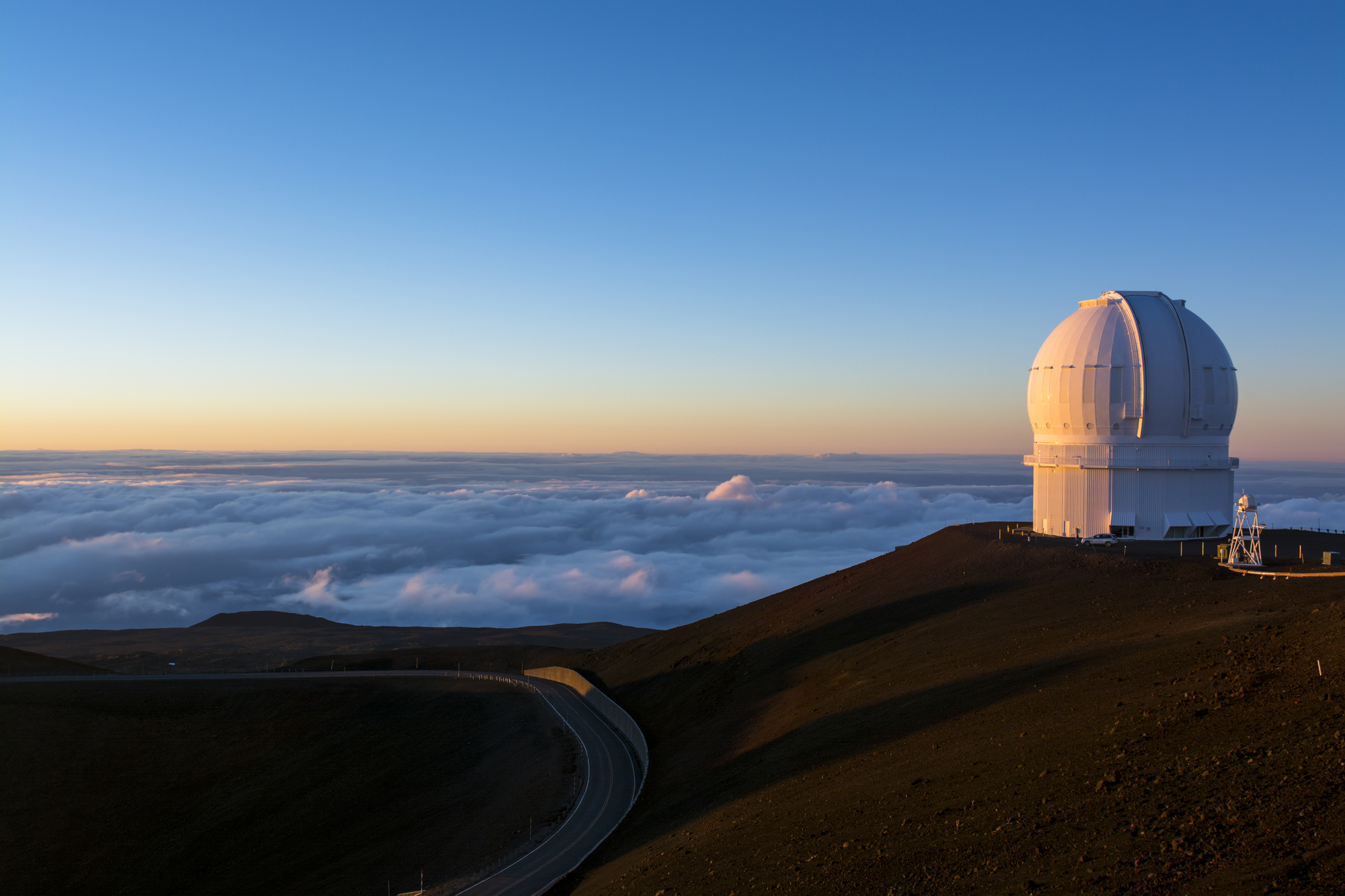

It’s been a long week on Hawaii’s Big Island, marked by arrests and continued conflict over the Thirty Meter Telescope planned for construction on Mauna Kea. The mountain is Hawaii’s highest peak and is sacred to Native Hawaiians, who have challenged plans for the megaproject on those grounds since discussion began in 2009. As Popular Science reported last week, protests by Native Hawaiians and allies have halted construction—for now.
But one concerned group isn’t there to feel the heat: the main scientific and financial backers of the Thirty-Metre Telescope. They’re represented by an organization known as the TMT International Observatory LLC, aka TIO. It was established back in May 2014, according to the institutional website, “to carry out the construction and operation phases of the TMT Project.” None of its member organizations are located in Hawaii: they hail from California, DC, Japan, China, India, and Canada. In addition, “major funding has been provided by the Gordon & Betty Moore Foundation,” according to the website. The foundation is also based in California.
In a statement released by the state governor’s office on July 10, when the plan to begin construction was announced, Henry Yang of the TIO Board of Governors said, “We acknowledge those who disagree with our project and express our respect for their views.” Yang has not issued a statement since, although he has appeared with the state governor, David Ige. He was photographed by the Honolulu Civil Beat standing behind the governor at a July 18 press conference, wearing an Aloha shirt.
In an email to Popular Science, Scott Ishikawa of Becker Communications, who identified himself as “the spokesperson with the Thirty Meter Telescope project,” wrote “We respect the rights of everyone—both supporters and protesters—to express their opinions.” The mountain is special, he went on, and TMT is working to “protect and conserve Mauna Kea’s cultural and natural resources, becoming a model of sustainable astronomy.”
“The selected site below the summit has no archaeological shrines or features and no burials,” he went on. “It has also been documented that the site was not used for traditional or customary cultural practices.”
But it isn’t just about the site of the telescope, protestors told ABC News. It’s about Hawaiian agency and control over their land.
Mauna Kea is generally considered a remarkably good place to conduct astronomical studies, but there are other possible sites for the telescope. Back in 2016, faced by intense opposition from Native Hawaiians and allies, TIO started looking at alternatives. It found a backup location in the Canary Islands, on the island of La Palma. There are already a number of observatories there, including the current largest telescope in the northern hemisphere. “They also considered high mountains in Chile, India, China, and Mexico,” according to NBC News.
“El Roque de los Muchachos Observatory has full capacity to meet the scientific objectives of the TMT and provides very similar atmospheric characteristics to Mauna Kea at visible and near-infrared wavelengths,” the assessment reads.
Some local politicians in Hawaii have called for a moratorium on TMT construction until the situation can be resolved. The moratorium may be discussed as early as a Wednesday, July 24 council meeting, Big Island Video News reports.
